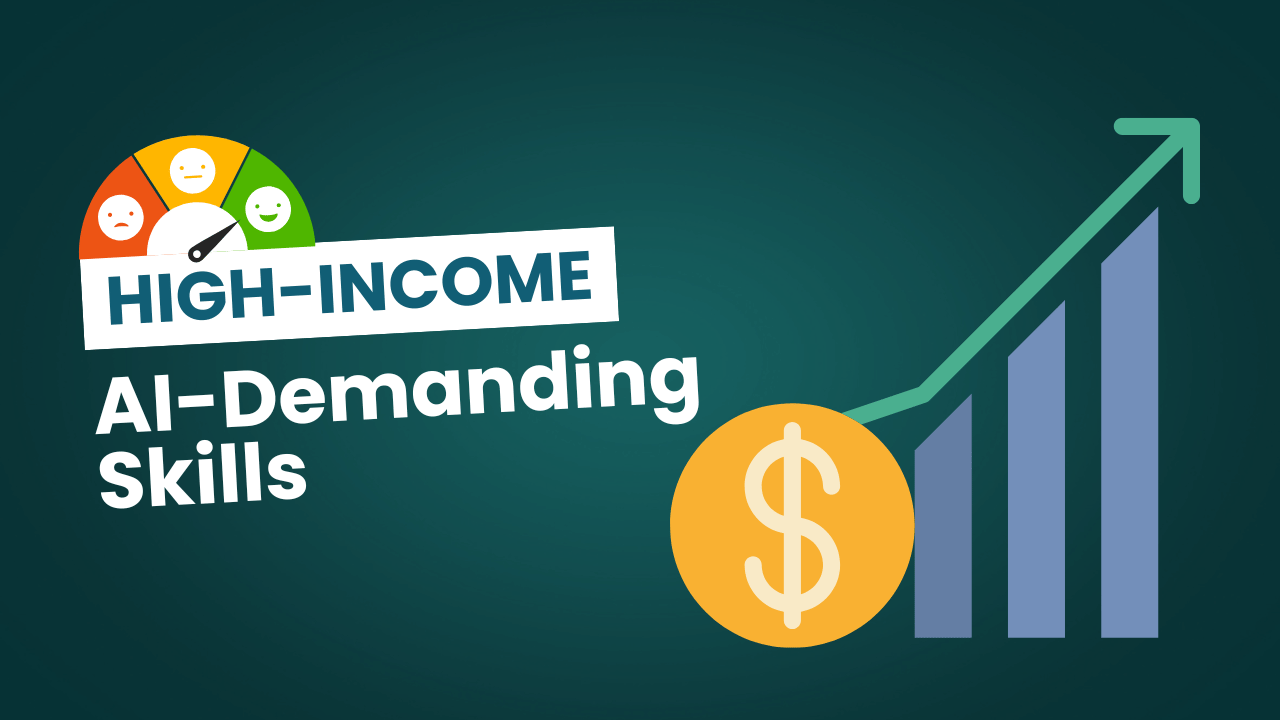6 High-Income AI-Demanding Skills
High-Income AI-Demanding Skills
(And why everyone’s talking about them lately—maybe for good reason)
Let’s be honest: AI isn’t just a buzzword anymore. It’s here. It’s real. And it’s quietly (or not so quietly) changing the game across nearly every industry. You’ve probably seen headlines—“AI taking over jobs,” “Massive layoffs due to automation,” and so on.
But here’s the flip side that doesn’t get enough attention: there’s an exploding demand for people who can work with AI, not be replaced by it.
So, what exactly are these high-income, AI-demanding skills people keep mentioning?
Well… it’s not a short list. But I’ll start with a few that consistently pop up when you look at the big-picture trends—and the job listings with eye-watering salaries.
1. Machine Learning & Deep Learning (Obviously, right?)
This one’s the most obvious, but it deserves a spot at the top. If you know how to build machine learning models, train neural networks, or optimize algorithms—that’s gold. Companies are desperate for folks who can make sense of messy data and turn it into predictive models that actually work.
And no, you don’t have to be some PhD-wielding genius (though sure, that helps). Even people who’ve built solid portfolios on Kaggle or GitHub are landing six-figure roles.
That said, it’s not for the faint-hearted. Lots of math, lots of frustration. But if you’re into it? It pays.
2. AI Prompt Engineering (Yes, it’s a real job now)
Now, this one’s relatively new. A few years ago, the term “prompt engineering” would’ve sounded like a joke. But now? Some companies are literally paying $250K+ to people who can write really, really good prompts for AI tools like ChatGPT, Claude, or image generators like Midjourney.
Sounds too easy, right? But it’s trickier than it looks. You have to think like the AI. You need to understand context, nuance, and how language shapes output. Kind of like being part poet, part programmer. I actually tried this myself, and honestly, it’s addictive.
3. Data Engineering & Data Analysis
Think of this as the foundation. Before any AI model can do its magic, someone needs to get the data, clean it, and structure it in a way that doesn’t break everything. That’s the job of data engineers.
And on the flip side, data analysts know how to dig through it all and pull insights that matter. It’s less about building models, more about understanding patterns—and explaining them in ways that non-tech folks actually get.
High-income? You bet. Especially if you’re good with tools like SQL, Python, and visualization platforms (Power BI, Tableau, etc.).
4. AI Ethics and Policy
This one surprised me. But it’s growing fast. As AI gets more powerful, the need for ethical oversight is skyrocketing. Companies need people who can ask the hard questions: Should we use this model? Is this bias fair? Are we protecting user data?
If you have a background in law, philosophy, or policy—and you understand tech just enough—this might be your sweet spot.
It’s not “coding” per se, but it’s still AI. And yes, the pay is strong, especially in sectors like healthcare, finance, and government.
5. Natural Language Processing (NLP)
Ever wondered how chatbots, virtual assistants, or even autocorrect work? That’s NLP. It’s all about helping machines understand human language—and let’s be real, our language is messy. Slang, typos, sarcasm. It’s not easy.
If you can work with libraries like spaCy, NLTK, or transformers (like BERT or GPT), you’re in a great place. And companies know that. NLP is a key area driving real-world AI applications, from sentiment analysis to customer support.
6. AI-Enhanced Product Design & UX
Okay, this one might sound unexpected, but hear me out: AI tools are being embedded in everyday products, and someone has to design how that feels to users. That’s where UX designers who understand AI come in.
Let’s say you’re designing an AI-powered writing app. How do you balance control vs. automation? How do you make the experience intuitive without overwhelming people? These are huge questions—and the people answering them are making bank.
(Also, kind of a fun job if you’re creative.)
One last thought…
Look, AI isn’t magic. It’s tools, math, and a whole lot of trial and error. But if you pick up the right skills and lean into where the world’s headed? The opportunities are wild.
Just don’t fall into the trap of thinking you need to know everything. Start somewhere—maybe even with one small project. Tinker. Break stuff. Google things you don’t understand. That’s honestly how most people get started.
And who knows, you might accidentally find yourself on the path to one of those high-income roles everyone keeps tweeting about.





